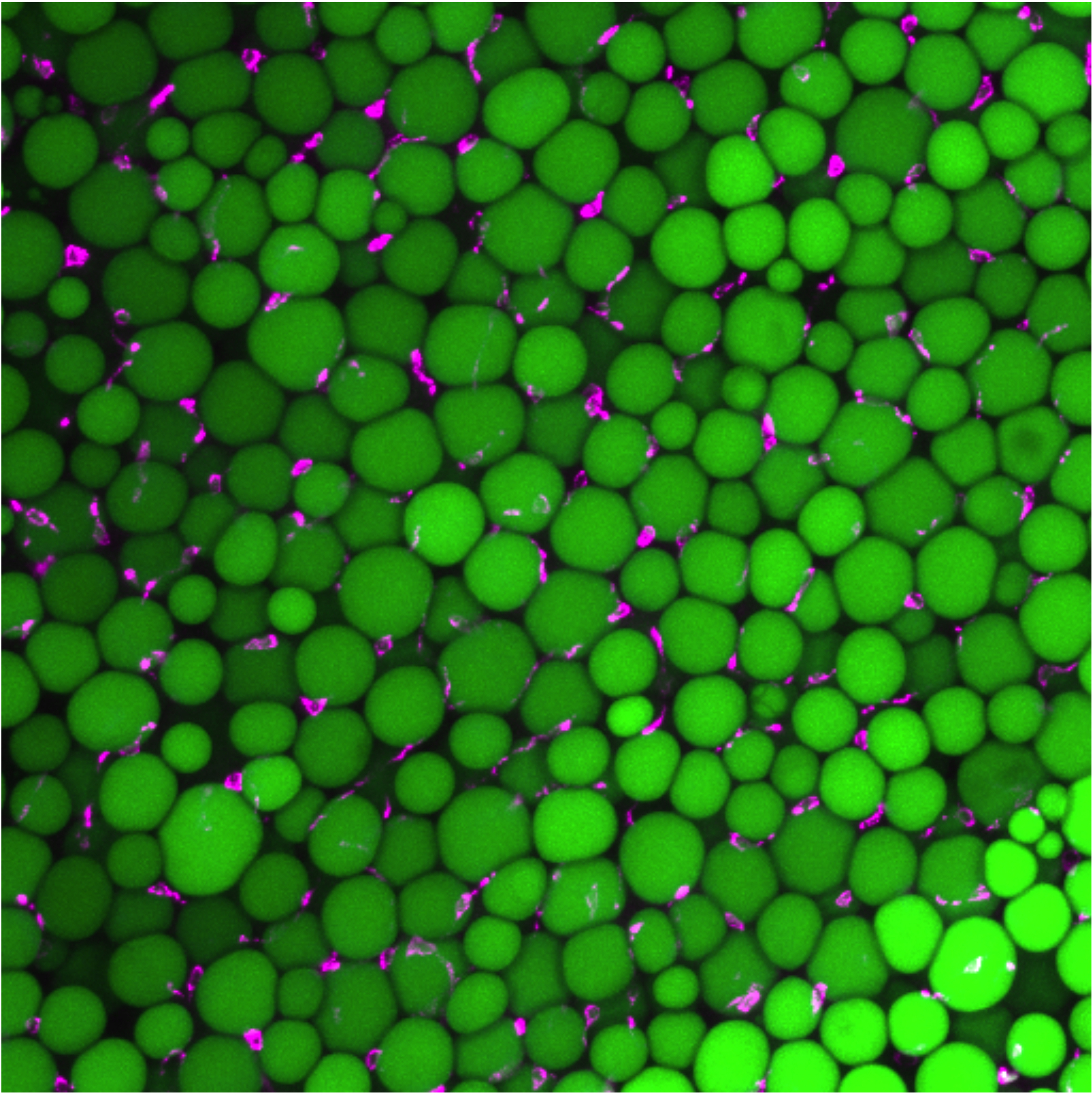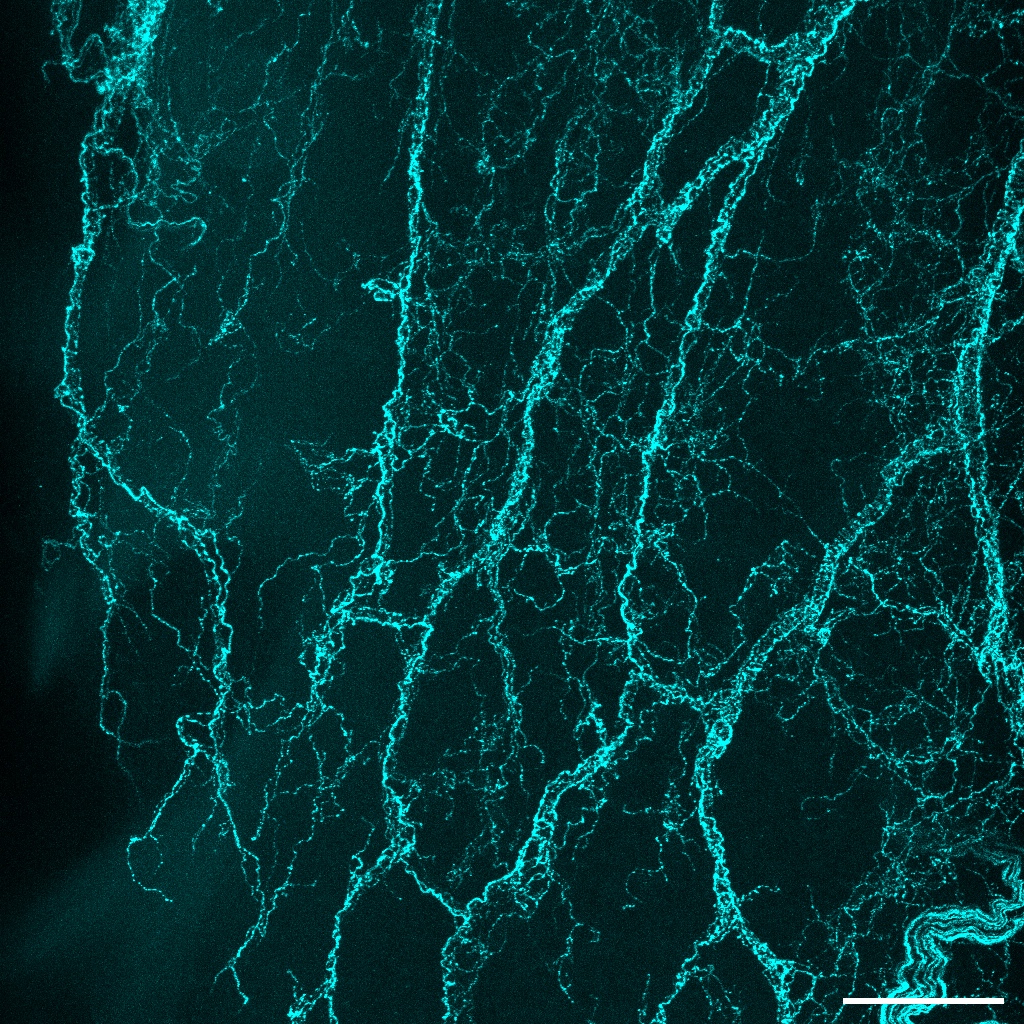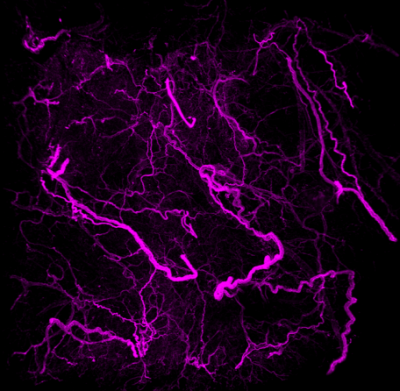Adipose biology
The importance of understanding adipose biology is paramount due to the high prevalence of metabolic diseases. Research at the Sung Lab focuses heavily on adipose biology, studying white adipose tissue, beige adipose tissue, brown adipose tissue, and their precursors. A significant contribution to this field is Dr. Sung’s development of the technique “whole mount staining” for white adipose tissue. Conventional methods for adipose tissue histology were unable to provide reproducible data on adipose tissue blood vessel morphology due to high lipid content and fragile cytoplasm of adipocytes. These challenges compromised image resolution when studying the structure of white adipose tissue. Dr. Sung overcame these issues by establishing a vascular visualization system for adipose tissue, which has been adopted for visualizing multiple organs such as muscle, retina, intestine, and skin. This method is now globally recognized as the standard for visualizing adipose tissue blood vessels.

Intermittent fasting
Intermittent fasting, a periodic energy restriction diet regimen, has emerged as an exciting and innovative topic in the scientific community. The Sung Lab has been a leading force in this field, focusing on investigating the potential therapeutic effects of intermittent fasting and elucidating the underlying mechanisms. In a recent study, we demonstrated that intermittent fasting promotes metabolic homeostasis by inducing brown fat-like changes in white fat and activating anti-inflammatory M2 macrophages. We strongly believe that intermittent fasting holds numerous potential benefits, and gaining a deeper understanding of the involved mechanisms will significantly contribute to our ability to combat diseases and illnesses.

Vascular biology
Vascular biology has always been a focal point of Dr. Sung’s research and is an integral theme at the Sung Lab. We have a keen interest in understanding angiogenic factors, such as Vascular Endothelial Growth Factor-A (VEGF-A), and their role in metabolism. To investigate the impact of VEGF on adipose expansion and metabolic regulation, Dr. Sung has developed two distinct mouse models using the Cre/LoxP and the rtTA/TetOn systems: adipose-specific VEGF knockout (AdVEGF-KO) and doxycycline-inducible VEGF overexpression (AdVEGF-Tg) mice. This mouse model has contributed to the discovery that inducing VEGF in AdVEGF-Tg animals protects mice from diet-induced metabolic abnormalities. Conversely, VEGF-KO animals exhibit elevated adipose inflammation and hypoxia, reduced vessel density, whole-body insulin resistance, and a diabetic phenotype. These findings highlight the critical role of adipose-VEGF and the adipose tissue vascular network in its endocrine and metabolic functions.

